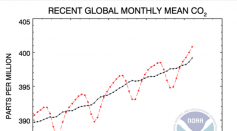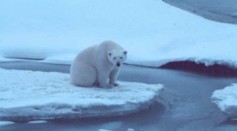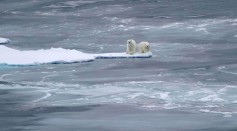Climate Change
Satellite Data Reveal an Alarming Trend in Antarctica
In the Face of Climate Change the Western United States Faces An Energy Crisis Far Too Real
Ocean Microbes and How They Affect Our Atmosphere in the Age of Climate Change
Record-Setting Drought Forces California Salmon to Take to the Highway

How's the Carbon Stacking Up? NOAA Says CO2 Has Passed Its Mark
How Can Soil Erosion Cause Our Doom? Loss of Nutrients Poised to Cause Massive Famine

AS GLOBAL TEMPERATURES RISE, SPECIES MAY PLUMMET

Extremely Hot Days—Why One Study Is Saying that Global Warming is to Blame
How Can The Pacific and a ‘Warm Blob’ Be the Cause of California’s Drought?
A Century of Climate Change—How the Complex Landscape of the Appalachian Forests Will Fare
Land Based Food May Not Be Enough to Save Polar Bears

Keeping Global Warming At 2 Degrees Celsius May Not Be Enough
Climate Change And the Urban Heat Island in California's Central Valley
Antarctica's Ice Shelves Melting Faster Than Originally Thought
Most Popular

La Ferrassie Man: What Makes Him One of World’s Most Famous Neanderthals?

Exotic Particle X(2370) Made of Pure Force Could Be Lightest Glueball Predicted by Standard Model of Physics

The Awesome Power of AI, and the Urgent Need for Proper Oversight

Should You Shower Everyday? Here's What Happens If You Shower Too Much, Too Little






